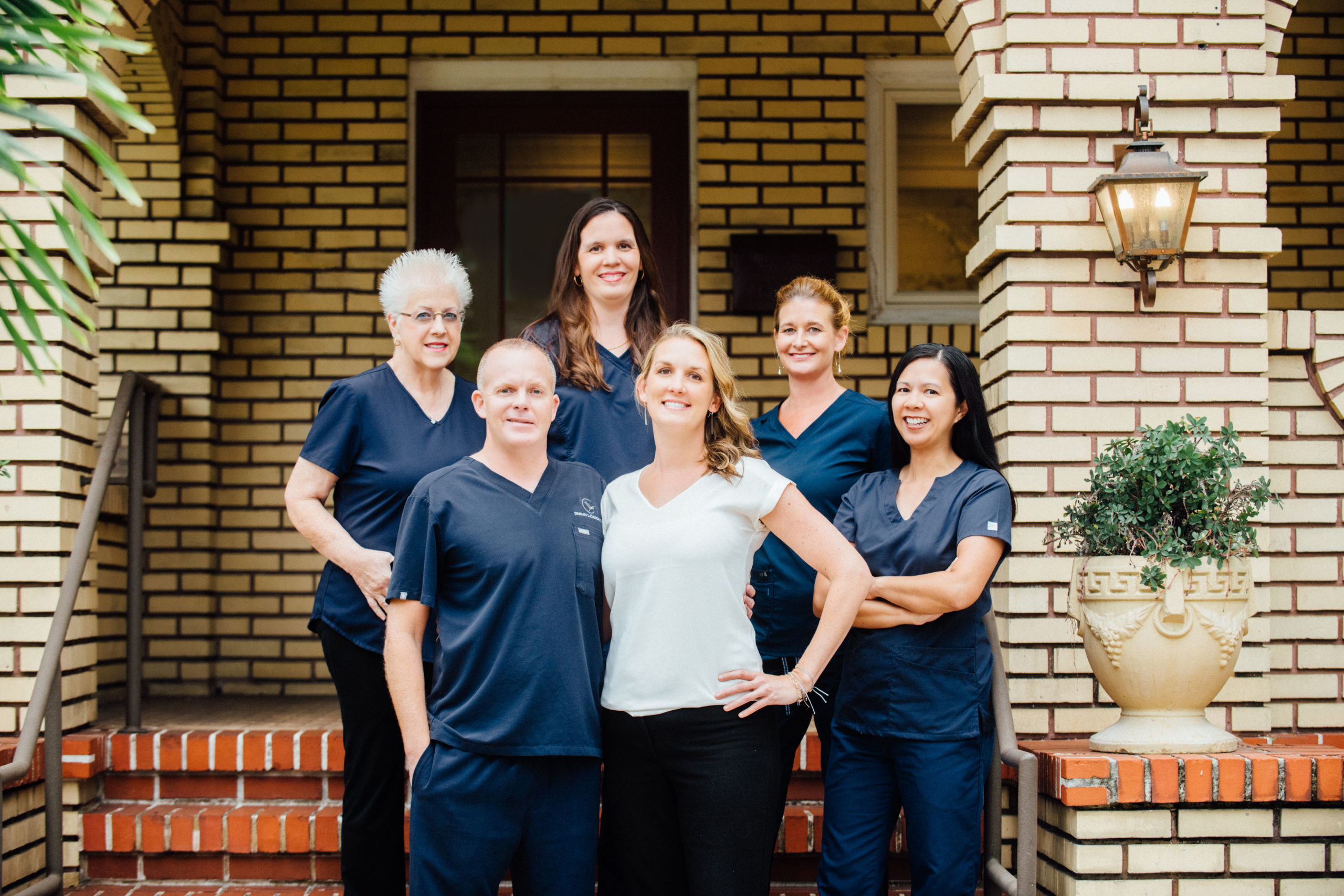Dentures
If you are missing some or all of your natural teeth, dentures can be made to look like your natural teeth to improve your smile and quality of life. With a little practice, dentures can make eating and speaking easier and add support to your cheeks and lips so the facial muscles don’t sag.
Types of Dentures
Conventional Complete Dentures
- Conventional complete dentures have replacement teeth fitted into an acrylic, gum-colored base.
- A conventional complete denture is placed in your mouth after the teeth are taken out and the tissues have healed.
- The base of the upper denture covers the palate, or the roof of your mouth, to create a seal and hold the denture in place. The lower denture has a horseshoe shape so that there is room for your tongue and muscle attachments. It rests on the gym and bone tissues of your dental ridge.
Implant-Supported Complete Dentures
- A complete denture may also be attached to dental implants to provide a more secure fit.
- The implants are surgically placed into your upper or lower jaw to ensure the denture is stable and reduce potential bone loss.
Immediate Dentures
- Immediate dentures are an option for some people. These dentures are made before any teeth are removed.
- With immediate dentures, you do not have to go without teeth during the healing time. As soon as the dentures are made, your dentist can remove the remaining teeth and place the dentures into your mouth.
Removable Partial Dentures
- A removable partial denture has replacement teeth attached to a metal or acrylic base that matches the color of your gums.
- Partial dentures oftentimes have a clasp that attaches to your natural teeth and can be easily removed for cleaning or storing.
- Removable partial dentures should not be worn 24 hours a day.
Caring for your Denture
Like natural teeth, you must take good care of your dentures.
- Clean your denture everyday. Take it out of your mouth and rise off. It is best to use a special brush when cleaning your dentures, but you can also use a toothbrush with soft bristles. To clean, wet your denture brush and put denture cleaner on it. You may also use a little bit of liquid dish soap.
- Do not use toothpaste to clean dentures. Some toothpastes have abrasive particles that can damage your denture.
- Keep your denture in water or in a specially made denture soaking solution when you are not wearing it. Remember to rinse your denture well after using denture cleanser before you put it back into your mouth.
- Use a denture cleanser that has the American Dental Association Seal of Acceptance.
Keep your denture away from children and pets to prevent it from being damaged.

We are a family-owned, private dental practice focused on providing gentle dental care for you and your family.
Contact Us